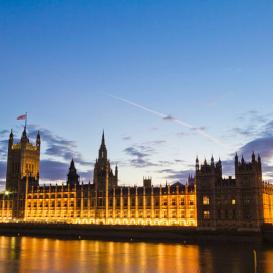You might have noticed that there has been a lot of interest around the possible results of the up-coming General Election and what will happen if there is another hung parliament, which the opinion polls suggest there will be. There have even been suggestions that the time of a majority government is over even thought at the moment both main political parties, Conservatives and Labour, claim that they still have a chance to gain an overall majority. To understand why there has been so much interest in this election the system in which we vote has to be looked at.
Does first past the post, work?
The current system to elect Members of Parliament (MP) use what is known as a First Past the Post system (FPTP). Within the FPTP system the country is divided up into different constituencies where voters select a single candidate that they would like to win. The candidate represents themselves or a political party with the hope of winning and gaining a seat in parliament. After all of the votes have been cast they are counted and the candidate with the most votes is declared the winner of that area, and all votes cast for other candidates count for nothing.
This is where the problem lies with the FPTP system, as the winning candidate just has to achieve the most votes not necessarily the majority of the votes cast. This works well when there is only two parties that are popular however the General Election in 2010 saw a large increase in the number of votes cast for the Liberal Democrats and helped to emphasise that the British political system is not as clear cut as it once was.
61% of UK people want electoral reform. Support among all ages, classes & regions http://t.co/bZjLH7kFHk @democraticaudit @electoralreform
— Peter Tatchell (@PeterTatchell) May 6, 2015
Do we deserve a new system?
Within the last General Election in some constituencies the candidates who won had achieved less than 40% of the overall vote in their constituency. In total two thirds or 433 of the MP’s elected did not achieve an overall majority. Many argue that the FPTP system does not fully represent the wants of the British public and suggest that there should be a change in the way that we vote suggesting that other systems may work better.

The Results of the 2010 General Election. Image:http://commons.wikimedia.org
An alternative would be the system of Proportional Representation where almost all votes would count towards the MP’s elected. One of the ways of implementing this would be through a Single Transferable Vote (STV) which is the same form of Proportional Representation used by the Scottish Parliament. In STV the candidates would have to gain a known quota or share of the votes which is dependent on the size of the electorate. The voters simply have to rank the candidates in order of preference so if your first choice already has enough votes then this means that your vote is transferred to your second choice. Similarly if your first choice won’t gain enough votes to be elected your vote is moved to your second choice.
Manifesto promises
It can be argued that this is a fairer way of voting and would result in more votes counting than in a FPTP system. The Liberal Democrats, the Scottish National Party, Plaid Cymru have all put in their 2015 manifesto that they would like to see a change in the way MP’s are elected and they believe that a STV system would work best. The Green Party’s 2015 manifesto also states that they would like to change the political system but would like to see the Additional Member System (AMS) being used. AMS contains elements of both FPTP and Proportional Representation, where the voter choses which candidate they would like to represent their constituency and from a list of candidates to represent them on a regional constituency level. The UK Independence Party has also noted in their manifesto that they would campaign for a Proportional Representation system but do not state which they prefer.
It can be seen that it is the smaller parties, who are usually disadvantaged in the FPTP system are campaigning for change and want to see a reform to the way that the British public votes. I think that it is fair to say that the current voting system needs to be changed to represent the will of the British public and to attempt to ensure that the MP’s who are elected are those who the country wants to represent them.









